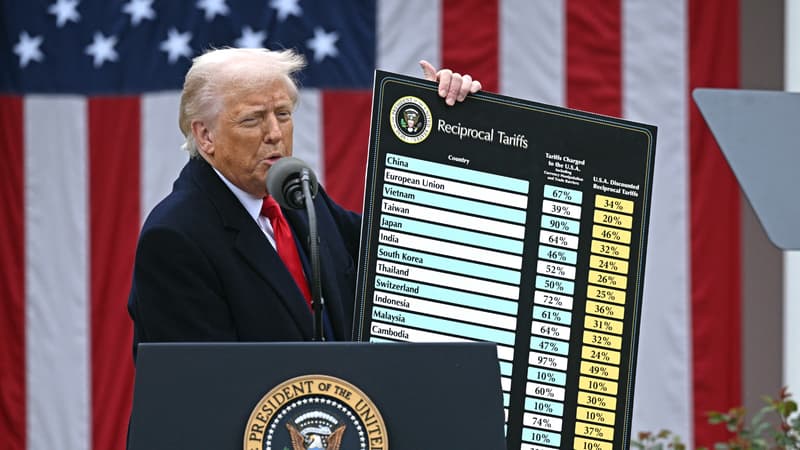After Donald Trump’s announcement, in April, customs duties aimed at products entering the United States, businessman Ben Knepler confiscated his phone to call the Cambodia factory that manufactures his camp furniture with a request: “Stop production.”
It should be said that at that time, the Kingdom of Southeast Asia risked to see its products achieved by a surcharge of 49%. “That night, we exchanged with our supplier,” recalls Ben Knepler. “We simply did not have the means to import our own products to the United States with such customs tariffs,” added the one who thought about the ax, avoiding having the camp chairs of their true places, based in Pennsylvania, produced in China.
Delocity of Trump’s first mandate
During Donald Trump’s first term (2017-2021), China and the United States launched themselves in a commercial war, pushing Ben Knepler to relocate its production in Cambodia, which took almost a year.
In the end, surcharges aimed at Cambodian products have been established from August 7 to 19%, a cost that remains significant for the entrepreneur. His experience reflects that of a myriad of small medium -sized US businesses that draw their products in the United States before doing them abroad, be it toys or clothing.
Before customs tariffs, each tries to find the correct answer, either by transmitting the additional cost of their customers, or ceasing to import certain products, crossing their fingers for a commercial agreement to allow them to be profitable again.
“Unfortunate wheel”
According to the communication of the White House, other countries will provide the costs of customs tariffs, and the latter will report, this year, tens of billions of dollars in the federal state, a prognosis that companies dispute.
Already humid of a debt of hundreds of thousands of dollars used to finance the movement of its production from China to Cambodia, now the future of its business is concerned. For him, the rapid change in politics is similar to a “wheel of misfortune”, each change would only add customs duties.
The impact of these import taxes continues to worry economists, who see them feed inflation and slow growth in the United States, with labor effects.
According to a calculation of the WTO and the IMF, updated last week, the customs duties applied by the United States are now an average of 20.1%, its highest level since the early 1910s, apart from a few weeks of 2025. The US President estimates that inflation figures, which show a limited impact for the United States, should silence critics. But experts expect repercussions to extend over time.
Price increase
Customs tasks are difficult to avoid. Barton O’Brien, who sells accessories for dogs, lent money and accelerated production to do as many actions as possible before entry into force.
During the presidential campaign, Donald Trump had threatened to apply a 60% surcharge in Chinese products, such as those made by Barton O’Brien. This veteran, who lives in Maryland, had to bring a container with the maximum of possible products before the new customs tasks re -entered into force. “I even had in the bathroom,” he said.
Their products are also manufactured in India and Vietnam, but the two countries are now attacked by a respective surcharge of 25% and 20% (or perhaps 50% for India). “If you look at my competitors, we all manufacture in the same countries. We will all have to increase prices,” concludes Barton O’Brien.
Source: BFM TV


